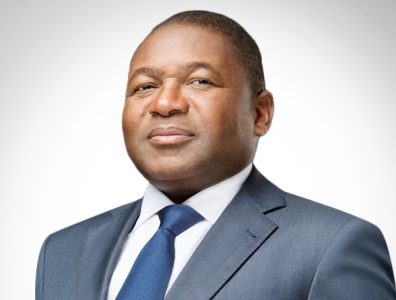
Mozambican President Filipe Jacinto Nyusi talks to The Energy Year about banking on natural gas as a transition energy source, collaborating with international financial institutions on infrastructure development and ushering in unprecedented investments in the Mozambican economy.
This interview is featured in The Energy Year Mozambique 2024
What are some of the government’s key priorities to accelerate Mozambique’s sustainable economic development?
Our economy was slowed down by events such as Covid-19, natural disasters, the war in Europe and the ongoing geopolitical risks in the Middle East, which substantially disrupted value chains. This prompted the government to enact a concrete set of measures in 2022 intended to accelerate economic growth.
As a result, we registered a solid 5.1% rate of growth in 2023, with clear evidence of recovery in tourism and agriculture, and double-digit growth in the extractive industry in line with increased demand for commodities as the world economy recovers underpinned by growth in China and India.
In like manner, we have continued the relentless revamp, expansion and modernisation of our ports and railway systems, catering to our landlocked neighbours, partly as a result of South Africa’s logistics bottlenecks, and carried out investments in roads and bridges, water systems, power generation and transmission, as well as in health and vocational education infrastructures. We have strengthened our position as a magnet for private investment by laying the foundation to bridge the gap between investment and savings.
High LNG prices in the short term translate into more government revenues and scale up the expectation for further developments in the sector, with the proviso that the onshore projects that are to resume development might have to revise capital expenditure upwards, but in a manner commensurate with expected returns.
I would tend to believe that with higher prices and improved valuations, the financials of the two largest onshore developments in waiting will look impressive, implying an immediate credit enhancement, which would shorten the time for the financial institutions to resume construction as soon as the force majeure is lifted.
All that bodes well for a transformational development of our country, which might see unprecedented investments to the tune of USD 50 billion, a true game-changer for the country’s fates, especially in what concerns the budget and the ability to slash debt levels, build forex reserves and bolster the local currency, paving the way to wean the country off external dependence.
First of all, I would like to remind you that almost 70% of our power generation is hydro, which is clean albeit dependent on weather conditions, and 30% is from gas-to-power, which is less polluting than other sources. The Mphanda Nkuwa project is a sign that we shall take advantage of our clean energy resources whilst positioning ourselves as a supply hub to our energy-deprived neighbours, keeping in mind that gas should be deployed as a transition energy source.
This is in line with the fact that solar power is intermittent and will always need to be complemented with a stable supply. At this juncture, we are building the north-south transmission backbone, and the Temane gas-to-power 450-MW plant happens to be the largest addition as we celebrate our independence jubilee next year.
As you can see, the interest in the sector by private investors is unquestionable, which speaks to an improved legal framework and our unwavering commitment to speeding up investments, lest we don’t take advantage of our gas at a time when renewable technology improves the business economics, especially in capital expenditure for solar panels.
This comes at a cost though, as a result of the requirement to have enough supply of critical minerals. In this connection, Mozambique is considering a regional view to add reserves of rare earths, graphite and other minerals in demand for EV manufacturing.
AfDB is our partner of choice; together we have developed the Temane project and the institution has provided us with technical assistance in structuring Mphanda Nkuwa. In addition, we are part of the Africa50 initiative that takes a helicopter view of the continent’s infrastructure landscape, including but not limited to the energy sector.
The expertise of the AfDB and other multilateral institutions is of paramount importance as most projects are highly leveraged, which requires a proper risk mitigation framework. This cements credibility and provides opportunities for regional cooperation, so that synergies and complementarities come to the table, thereby avoiding unnecessary competition as well as resource-sharing conflicts between neighbouring countries.
